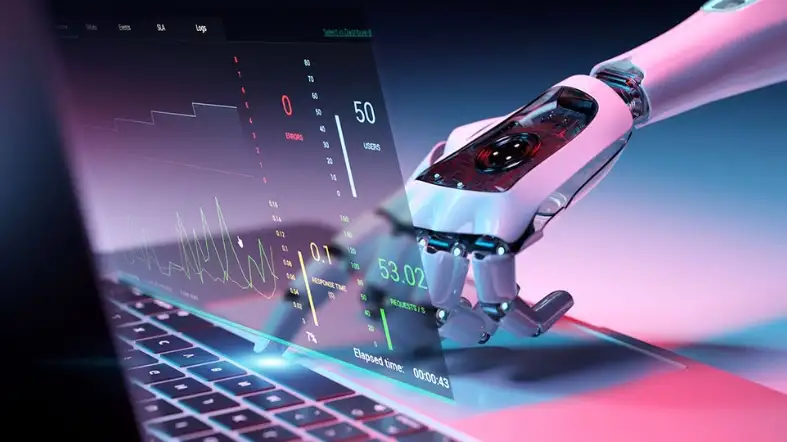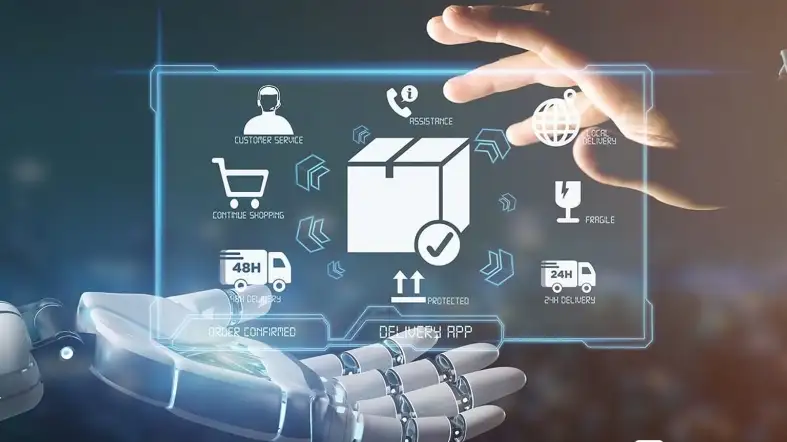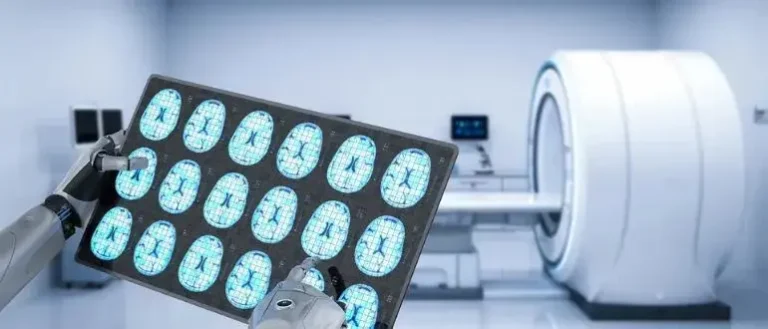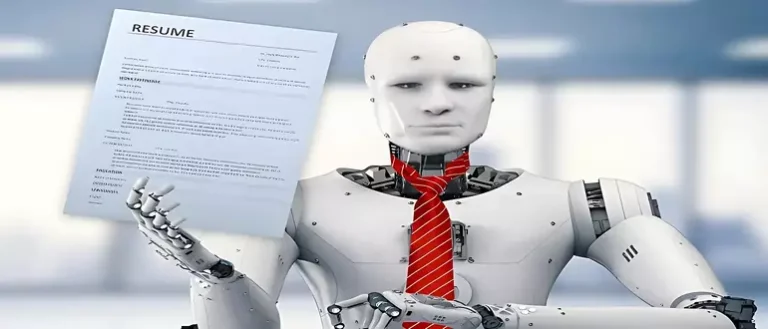Software development requires testing. Software faults are found and fixed before release. AI may replace software testers, raising concerns.
In this blog post, we will examine how AI will impact the role of testers, the required skills for software testers to stay relevant to AI, and the ethical implications of AI in this sector.

Will AI Replace Software Testers?
No, AI is not expected to replace software testers entirely. While AI can improve testing coverage and accuracy, it lacks the ability to perform exploratory testing and identify non-obvious faults.
In the short term, AI and human testers are likely to work together, with AI supporting testers in tasks such as test case design and execution. The roles of human testers may evolve to incorporate AI tools.
How Will AI Impact The Role Of Software Testers?
Automation and Efficiency
AI automates and streamlines software testing. Test automation engineers are teaching AI systems to run tests faster and more correctly than humans.
AI speeds up manual testing. Software testers can focus on more important and sophisticated tasks, increasing productivity.
AI-powered testing systems can generate and perform dozens or millions of test variations, covering all software functionality. This efficiency helps speed up testing and software releases.
Improved Test Maintenance
Software code undergoes frequent changes, which can break existing tests. Updating tests manually can be time-consuming and error-prone.
However, AI can help streamline test maintenance. AI-powered tools can analyze code changes and automatically update the relevant tests, ensuring they remain effective and accurate.
This reduces the burden on software testers, allowing them to focus on more strategic aspects of testing rather than repetitive maintenance tasks.
Enhanced Quality Assurance
AI systems have the potential to improve the overall quality assurance (QA) process.
They can identify quality issues, biases, security vulnerabilities, and other flaws in software systems.
AI algorithms can learn from historical data and detect patterns that humans might miss.
By leveraging AI in software testing, organizations can enhance the accuracy and reliability of their QA efforts, leading to higher-quality software products.
For instance, AI can help identify and mitigate bias in AI systems themselves, ensuring fairness and ethical considerations.
AI-powered testing can also detect security vulnerabilities and address potential threats more effectively.
Test Data Generation:
Generating test data is a tedious and time-consuming task for software testers. However, AI can help testers automate this process.
AI algorithms can create realistic test data by analyzing real-world data and creating synthetic data that is similar to real-world data.
AI can also quickly generate large amounts of test data, which can help testers test software more comprehensively.
Intelligent Defect Analysis:
Defect analysis is another area where AI can help software testers. AI algorithms can analyze defect patterns, identify root causes, and recommend corrective actions.
This can help testers prioritize defects and fix them more efficiently. AI can also help testers detect defects earlier in the software development lifecycle, saving time and reducing costs.
Predictive Analytics:
Predictive analytics is another way that AI can impact the role of software testers.
Predictive analytics uses machine learning algorithms to analyze data and predict future outcomes.
In software testing, predictive analytics can help testers identify potential defects before they occur.
This can help testers focus their testing efforts on the areas that are most likely to have defects, which can save time and reduce costs.
Exploratory Testing:
Exploratory testing is a testing technique that involves simultaneous learning, test design, and test execution.
AI can help software testers with exploratory testing by suggesting test scenarios, generating test cases, and identifying areas that need further testing.
This can help testers explore software more thoroughly and find defects that may have been missed with manual testing alone.
How Should Software Tester Prepare For The Rise Of AI In Their Industry?

Learn the Importance of Data for AI Models
One of the key aspects to consider when preparing for the rise of AI in software testing is the significance of data for AI models.
AI models heavily rely on high-quality data to produce accurate and reliable results.
Without sufficient data, there is a risk of the “garbage in, garbage out” phenomenon, where the output of the AI model is only as good as the input data.
Before using AI models, software testers must guarantee they have enough high-quality data.
Developers and data scientists should help them find datasets for AI model training.
Testers should also be conversant with machine learning (ML) models that may provide sample data for AI model training.
Embracing AI-Based Testing Techniques
AI-based testing techniques are becoming increasingly popular and effective in the software testing industry.
These techniques utilize AI and machine learning algorithms to enhance the testing process, making it smarter and highly efficient.
By embracing these techniques, software testers can adapt to the changing landscape and improve their testing methodologies. Here are a few examples:
AI-Based Test Automation:
Test automation tools like Test.ai leverage AI capabilities to perform regression testing.
These tools can automatically identify and execute test cases, significantly reducing the time and effort required for testing.
AI-Powered Defect Prediction:
AI can be used to analyze historical data and predict potential defects in software applications.
By leveraging AI-powered defect prediction techniques, testers can proactively address and mitigate issues before they impact the end users.
AI-Enhanced Test Case Generation:
AI algorithms can assist in generating test cases based on the analysis of software requirements, specifications, and historical test data.
This automation can save time and effort for testers while ensuring comprehensive test coverage.
Developing New Skills

As AI continues to evolve and reshape the software testing industry, it’s crucial for software testers to acquire new skills to adapt to this changing landscape. Here are a few skills that can be beneficial:
Data Analysis and Interpretation:
Testers should develop proficiency in analyzing and interpreting data, as AI models heavily rely on data for training and decision-making.
This includes understanding statistical concepts, data visualization techniques, and the ability to derive meaningful insights from data.
AI Model Evaluation:
Testers should familiarize themselves with techniques for evaluating AI models, including metrics such as accuracy, precision, recall, and F1 score.
This knowledge will enable them to assess the performance and reliability of AI models in the testing process.
Collaboration and Communication:
As AI becomes integral to software testing, effective collaboration and communication skills are crucial.
Testers should be able to work closely with developers, data scientists, and other stakeholders to ensure seamless integration of AI techniques into the testing workflow.
Adapting to the Changing Testing Landscape
The rise of AI in software testing brings about changes in the testing landscape.
Testers need to adapt to these changes to stay relevant and effective. Here are a few strategies to consider:
Continuous Learning:
Software testers should engage in continuous learning to stay updated with the latest advancements in AI and testing methodologies.
This can be achieved through attending conferences, webinars, workshops, and online courses specifically focused on AI in testing.
Collaboration with AI Experts:
Testers should actively collaborate with AI experts and data scientists to gain insights and guidance on effectively incorporating AI into their testing processes.
This collaboration can help testers leverage the expertise of AI specialists and ensure optimal utilization of AI technologies in their work.
Developing Domain Expertise:
Testers should focus on developing domain expertise in the industries they work in.
This includes understanding the specific challenges, requirements, and complexities associated with the applications being tested.
By combining domain knowledge with AI capabilities, testers can provide more valuable insights and enhance the overall testing process.
Embracing Ethical Considerations:
As AI becomes more prevalent in software testing, it’s important for testers to be aware of the ethical considerations associated with AI applications.
They should understand the potential biases, privacy concerns, and fairness issues that may arise when using AI models for testing.
By incorporating ethical considerations into their work, testers can ensure that AI is used responsibly and in alignment with the best interests of humanity.
Keeping Human Skills Relevant
Despite the increasing presence of AI in software testing, it’s essential to remember that AI is not a replacement for human testers.
Instead, it is a tool that can assist them in their work. Human testers possess unique skills that are crucial in ensuring quality software. Here are some ways to keep human skills relevant:
Critical Thinking:
Testers should continue to develop their critical thinking skills, which allow them to analyze complex situations, identify potential issues, and make informed decisions.
Critical thinking enables testers to go beyond the capabilities of AI models and provide valuable insights based on their experience and expertise.
Exploratory Testing:
Exploratory testing involves actively exploring the software application to uncover defects that may not be easily detected through automated testing.
Testers should hone their exploratory testing skills to complement the capabilities of AI-driven testing techniques.
User-Centric Perspective:
Human testers bring a user-centric perspective to the testing process.
They can assess the user experience, usability, and intuitiveness of the software, which are vital aspects that AI models may struggle to evaluate.
Testers should continue to focus on understanding user needs and preferences to ensure that AI-driven testing aligns with user expectations.
The Ethical Implications Of AI In Software Testing

Privacy and Surveillance:
AI in software testing can raise concerns regarding privacy and surveillance.
With the increasing use of AI, vast amounts of data are generated and analyzed, which can include sensitive information.
There is a need to ensure that user privacy is protected and data is handled responsibly.
For example, the General Data Protection Regulation (GDPR) legislation in the European Union aims to safeguard personal data.
Bias and Discrimination:
Instances of bias and discrimination have been observed in various intelligent systems, including those utilizing AI.
Bias can emerge from the training data used to develop AI models, leading to unfair outcomes.
It is crucial to identify and mitigate bias in AI systems to ensure fairness and equal treatment.
For instance, when AI is employed in recruitment processes, it must be carefully monitored to prevent discrimination based on factors such as gender, race, or age.
The Role of Human Judgment:
The role of human judgment in AI-based software testing is a profound philosophical question.
As AI systems become more advanced, they can make decisions and perform tasks autonomously.
However, it is essential to consider the ethical implications of relying solely on AI and excluding human judgment.
Human intervention and oversight are necessary to ensure accountability, identify unforeseen consequences, and make nuanced ethical judgments.
Job Displacement
The rise of AI and automation has raised concerns about job displacement and the future of work.
While some argue that AI can create new jobs and opportunities, others fear that it will lead to widespread unemployment and inequality.
Therefore, it is important to prepare workers for the transition to a more AI-driven economy and to ensure that the benefits of AI are distributed fairly.
Ethical Frameworks
Finally, to address these ethical concerns, various organizations and initiatives have developed ethical frameworks and guidelines for the development and deployment of AI systems.
These frameworks aim to promote transparency, accountability, and ethical values in AI and to ensure that AI is developed and used for the benefit of society as a whole.
FAQs
Can AI-Powered Tools Like ChatGPT Replace Human Testers?
AI-powered tools such as ChatGPT are not intended to replace human testers, but rather enhance their capabilities.
These tools can aid testers by automating certain tasks, reducing manual efforts, and improving the testing process.
Can AI-Based Systems Write Effective Manual Testing?
The question of whether AI-based systems can replace the manual testing process is constantly raised.
However, it is important to note that AI-based systems are not expected to replace manual testing but rather assist testers in performing their tasks more efficiently.
Can AI Replace Penetration Testers?
AI, particularly in its current state, is unlikely to replace experienced penetration testers.
However, AI can potentially replace beginner-level penetration testers by learning from basic rules and applying reasoning and problem-solving techniques.
How Should Organizations Approach AI In Software Testing?
Introducing AI into software testing requires a solid test management solution and a well-organized test organization.
AI should be seen as a tool that complements the testers’ work and adds complexity to the testing process.
It is crucial to carefully evaluate the benefits and limitations of AI in order to make informed decisions about its implementation.
Conclusion
AI is fast evolving and might change several industries, including software testing. AI can automate software testing, but it cannot replace humans.
A good software tester can utilize their intuition and expertise to spot issues that AI may miss.
Thus, AI won’t replace software testers soon. Software testers must upskill to stay competitive as AI technology advances.





